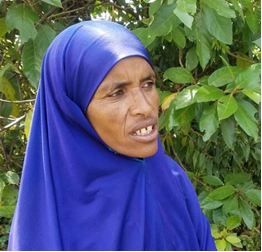Local communities in Ethiopia push through COVID challenges to advance reforestation efforts
In the past few years, local communities in Ethiopia’s Oromia region have been working actively with the government and development partners to rehabilitate deforested landscapes and protect existing forests in their area. Ethiopia’s Oromia Forested Landscape Program – financed by the World Bank’s BioCarbon Fund Initiative for Sustainable Forest Landscapes – is implementing afforestation, reforestation, and participatory forest management practices in deforestation hotspot areas in the Oromia region. These efforts include mobilizing local communities, conducting community consultations, and working with self-selected groups.
However, the unprecedented global COVID-19 pandemic is now posing a clear threat to these efforts. Community consultations—a key component in mobilizing community members—are now more hazardous due to the risk of COVID-19 infection. This is negatively affecting the consultations and follow-up efforts undertaken by community groups, including site clearance, pit preparation, nursery management, seedling plantation, and nurturing.
“In consultation with my husband, we have decided to contribute quarter a hectare of our farmland to the forest development efforts in which I am actively engaging with my neighbors. I know it would not give me an immediate return, but it definitely brings a better future for our children,” says Betulla Tula, a local farmer, and mother of six in the Bedele district of Oromia.
The Oromia Forested Landscape Program is now devising several techniques to realize the dreams of Betulla and keep the strong momentum of the voluntarily-formed community groups in her village and others across the project area. For example, volunteers are conducting home-to-home consultations instead of public consultations and deploying working shifts for nursery employees to reduce gatherings and raise their awareness of safety measures in the workplace. Participants are also strictly adhering to social distancing measures during planting, promoting work from home protocols, and enhancing social distancing in office working environments to ensure safety.
The progress achieved in afforestation and reforestation activities, which currently covers about 7,000 hectares, is clear evidence of communities’ efforts to bring significant change in managing the land and avoiding deforestation. Significantly, the Oromia Forested Landscape Program has successfully brought 92,000 hectares of forest under participatory forest management schemes and an Emission Reductions Purchase Agreement is expected to be signed in late 2021.
Photo Credit: Zena Afework Demissie - World Bank

